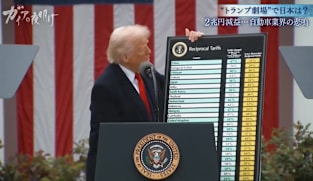Raj Joshua Thomas on motion calling for abolition of Group Representation Constituencies
The question of minority representation in Parliament is one that Singapore has pondered from the start of its independence. Various models were considered and ultimately, the country settled on the Group Representation Constituency (GRC) system. NMP Raj Joshua Thomas made this point in Parliament on Wednesday (Jul 5). He said the Progress Singapore Party (PSP) feels that the time is right to reopen the matter and he posed six questions to PSP. First, does PSP accept that there is no perfect electoral system? Mr Thomas noted that the party is proposing to revert to a prior, also imperfect system. He raised queries on PSP’s two alternative suggestions - an NCMP scheme for minorities and proportional representation - and how they would work better in the Singapore context. Second, has the GRC system achieved its original primary objectives? Mr Thomas’ answer was yes - there is good minority representation in Parliament, and without “potentially divisive” concerns or issues of race being brought up in elections. Third, does PSP accept that in politics, perception, suggestion and allegation can be as impactful as reality, and even more dangerous? Mr Thomas said that should a minority candidate lose against a Chinese candidate - which has never happened before - there would “inevitably” be suggestions and a perception of race-based voting, which could lead to racial unhappiness and distrust. The GRC system does not even allow such perceptions to form. Fourth, does PSP accept that Singapore’s racial and religious harmony is hard-fought and fragile? Mr Thomas said the fact that opposition parties qualify their calls to abolish GRCs by saying that Singaporeans are now unlikely to vote based on race, is an inherent admission that this may not have been so in the past. And the “fundamental flaw” in this argument is that if things can change for the better, they can also change for the worse. Fifth, does PSP therefore accept that abolishing the GRC system is a “gamble” which, if lost, stands to jeopardise the very unity of the country? And sixth, does PSP then accept that the disadvantages of the GRC system can be ameliorated to a satisfactory extent by reducing the sizes of GRCs and increasing the number of SMCs, while at the same time preserving its advantages? Mr Thomas concluded that Singapore should not make this gamble and he did not support the motion.
The question of minority representation in Parliament is one that Singapore has pondered from the start of its independence. Various models were considered and ultimately, the country settled on the Group Representation Constituency (GRC) system. NMP Raj Joshua Thomas made this point in Parliament on Wednesday (Jul 5). He said the Progress Singapore Party (PSP) feels that the time is right to reopen the matter and he posed six questions to PSP. First, does PSP accept that there is no perfect electoral system? Mr Thomas noted that the party is proposing to revert to a prior, also imperfect system. He raised queries on PSP’s two alternative suggestions - an NCMP scheme for minorities and proportional representation - and how they would work better in the Singapore context. Second, has the GRC system achieved its original primary objectives? Mr Thomas’ answer was yes - there is good minority representation in Parliament, and without “potentially divisive” concerns or issues of race being brought up in elections. Third, does PSP accept that in politics, perception, suggestion and allegation can be as impactful as reality, and even more dangerous? Mr Thomas said that should a minority candidate lose against a Chinese candidate - which has never happened before - there would “inevitably” be suggestions and a perception of race-based voting, which could lead to racial unhappiness and distrust. The GRC system does not even allow such perceptions to form. Fourth, does PSP accept that Singapore’s racial and religious harmony is hard-fought and fragile? Mr Thomas said the fact that opposition parties qualify their calls to abolish GRCs by saying that Singaporeans are now unlikely to vote based on race, is an inherent admission that this may not have been so in the past. And the “fundamental flaw” in this argument is that if things can change for the better, they can also change for the worse. Fifth, does PSP therefore accept that abolishing the GRC system is a “gamble” which, if lost, stands to jeopardise the very unity of the country? And sixth, does PSP then accept that the disadvantages of the GRC system can be ameliorated to a satisfactory extent by reducing the sizes of GRCs and increasing the number of SMCs, while at the same time preserving its advantages? Mr Thomas concluded that Singapore should not make this gamble and he did not support the motion.



















